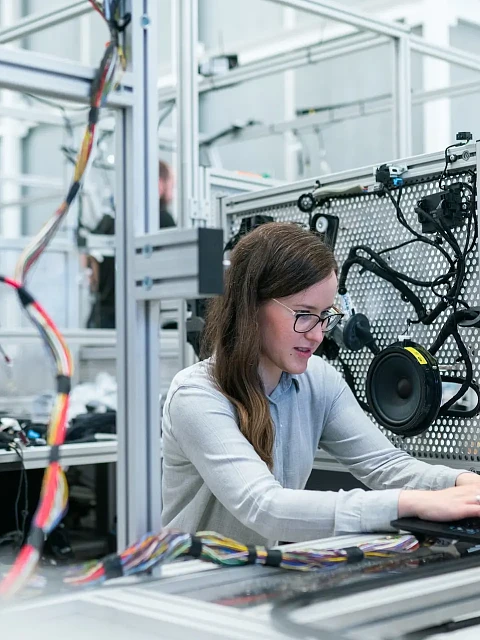
Opening a Gateway to the Future of AI
December 12, 2023
Opening that gateway can be a bit overwhelming. Back in the day, predicting the future meant looking three or four decades ahead. Now, this projection has drastically shortened to just one or two years. Still, taking a shot at making predictions is a bit nerve-wracking because, truth be told, nobody really knows how things will pan out. But here I am, considering myself a bit of a daredevil, opening up this window to share what I think might be some trends in Artificial Intelligence in the years to come.
First off, it's pretty evident that Generative AI (GAI) is on the upswing. Companies are going full throttle in embracing and tweaking GAI for various business functions, and we're likely to see some cool improvements in how these tools get more sophisticated and applied. This is going to lead to more stuff getting automated (you know, tasks that humans used to do but now machines handle) and more tasks getting supercharged (making humans way more efficient).
Machine Learning, playing a vital role in AI, is on a roll, gearing up in both capacity and applications. One of the big game-changers will be Edge Computing – a tech that's set to boom globally in the next five years. This shift hints at a major boost in how we process and analyze data in the "last mile," getting it closer to where it's generated and used. Another big player is Quantum Computing, letting us tackle complex computational problems faster and with less energy. As quantum computing grows up, its impact will be felt in areas that demand serious computational muscle, like simulating materials, financial wizardry, or cutting-edge biomedical research.
All this will impact the workforce. Organizations will likely continue to adjust their human resources strategies in response to the changes brought by AI and related technologies. There will be staff cuts in certain areas, task readjustments in many others, and significant retraining efforts. Four-day work weeks will become increasingly common. Companies will regenerate with younger profiles more accustomed to these new ways of working. Gradually, we will grow our trust in AI tools as colleagues and change the way we work. Professional profiles will either be highly educated and skilled, working in development and innovation, or less expert profiles, more oriented towards interpersonal and creative skills, error correction, and AI quality control, management, or communication.
In addition, interaction with the digital world will continue to evolve towards simpler and more intuitive interfaces, including virtual and augmented reality. These immersive technologies will have a significant impact on the economy and society, both due to the breadth of commercial possibilities and what it will mean for future generations, who will normalize it as part of their lives.
The Cloud environment will become increasingly complex and busy, with all that implies. Companies will face growing challenges in terms of integration, security, and management of multiple cloud providers. Effective management of multicloud chaos will not only improve operational efficiency but will also be essential to ensure data security, optimize costs, and maintain business agility in an increasingly dynamic technological environment.
All this with an eye on sustainability issues. As companies adopt these advanced technologies, such as AI, Cloud, and Quantum Computing, energy efficiency and environmental impact will become primary considerations. Organizations will look for ways to minimize their carbon footprint while maximizing operational effectiveness, thus balancing technological innovation with environmental responsibility. This sustainable approach will not only be an ethical imperative but also a competitive advantage, driving companies towards greener practices and more energy-efficient technologies.
